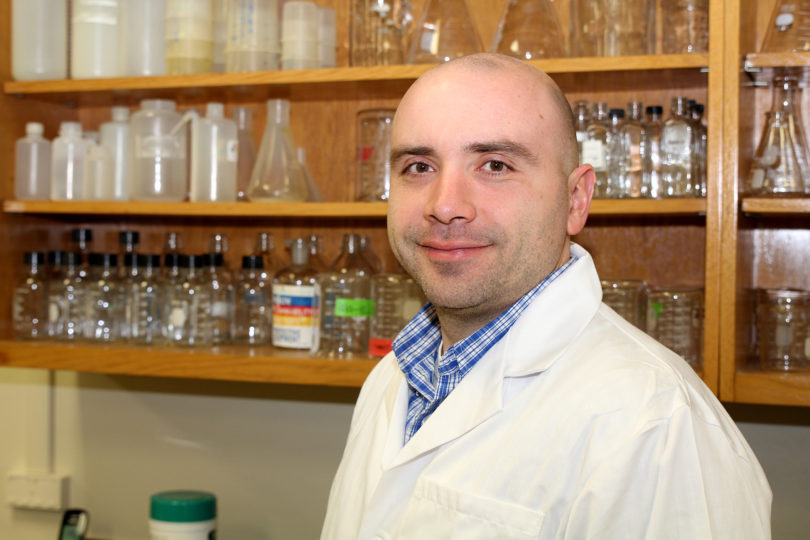Researchers led by a College of Family and Consumer Sciences faculty member have identified candidate genes associated with disease-causing free radicals.
By identifying the specific genes that influence the cell’s ability to fight free radicals-the reactive molecules strongly linked with a variety of chronic diseases-researchers say the findings can be a starting point for future studies aimed at the origin of chronic illnesses such as cardiovascular disease and diabetes.
“We can learn a lot about diseases if we know our risk factors for them,” said Robert Pazdro, an assistant professor in the foods and nutrition department. “Once we know the genes responsible, we can manipulate these genes in a way to prevent or slow disease.”
The researchers’ work focused on a molecule called glutathione, a small antioxidant found in abundance in human cells. Higher glutathione levels can equate to more protection for a person’s tissues.
Using gene mapping techniques involving mice, Pazdro and his team identified candidate genes that regulate glutathione levels in the kidneys and liver.
“What we discovered is they’re different genes,” Pazdro said. “That’s what really makes this interesting because the subtle variation you have in your DNA can maybe make you more resistant to liver disease, whereas the variation I have can make me more resistant to kidney disease.”
Pazdro’s initial work began at Jackson Laboratory, a Maine-based genetics research lab, and was funded there by a National Institutes of Health post-doctoral grant. He continued his work in the field upon joining UGA’s foods and nutrition department in 2013.
Pazdro noted this is the first time the genes that regulate glutathione concentration in tissues have been mapped.
“What this does is it guides future efforts to say which genes we should be looking at,” Pazdro said.








